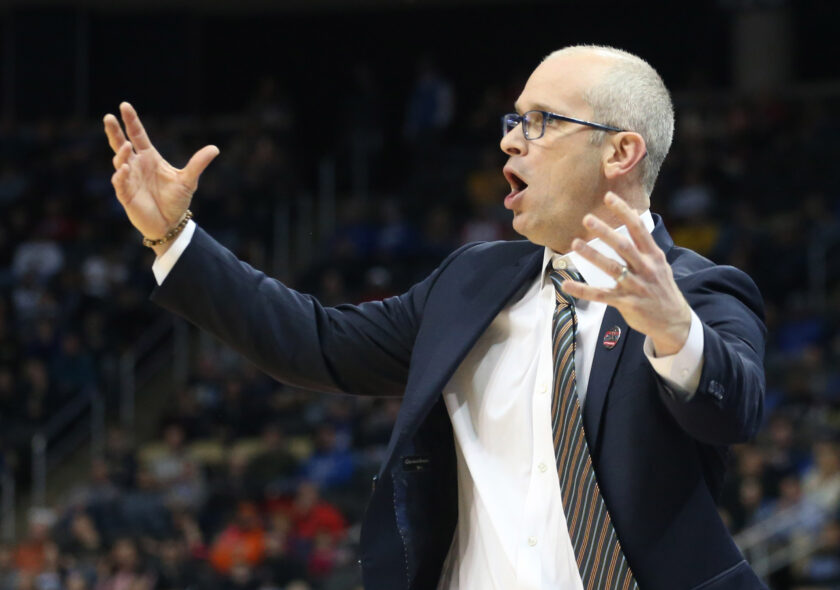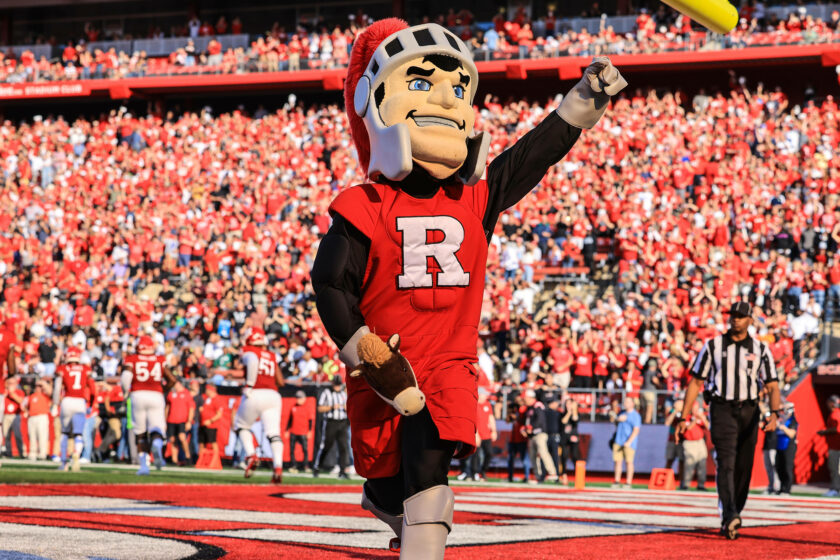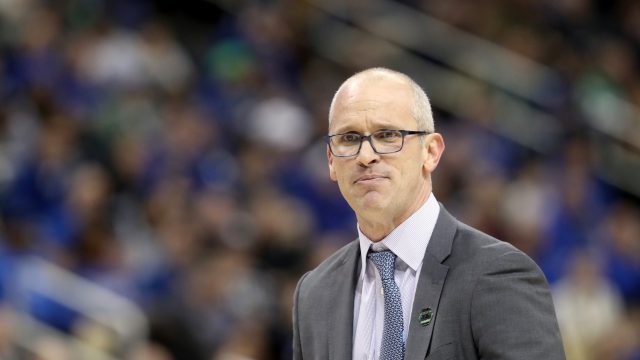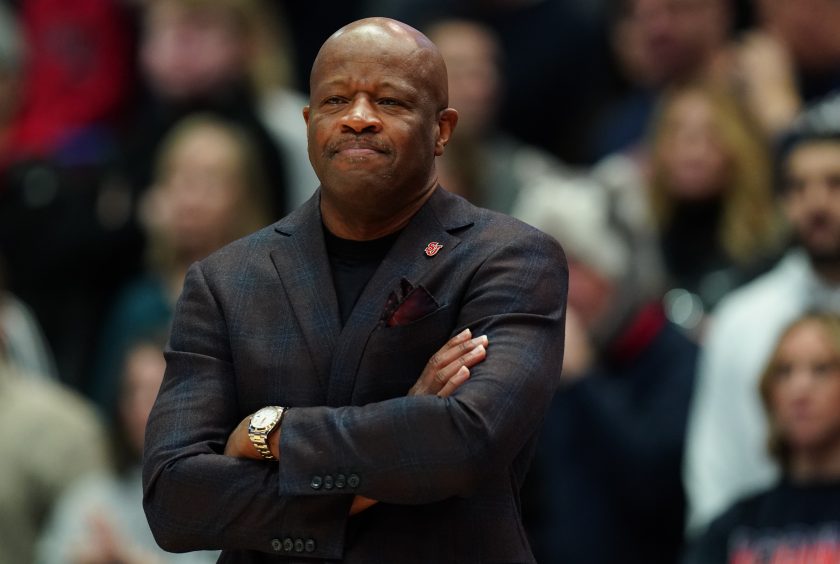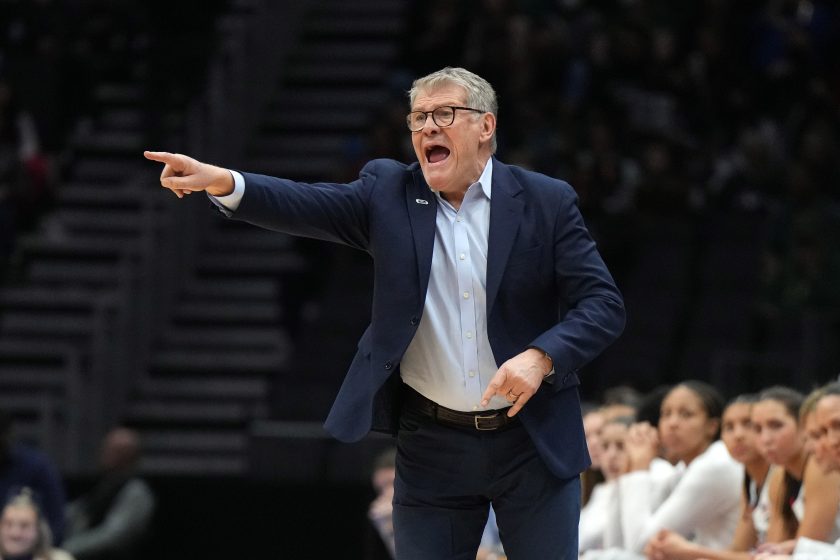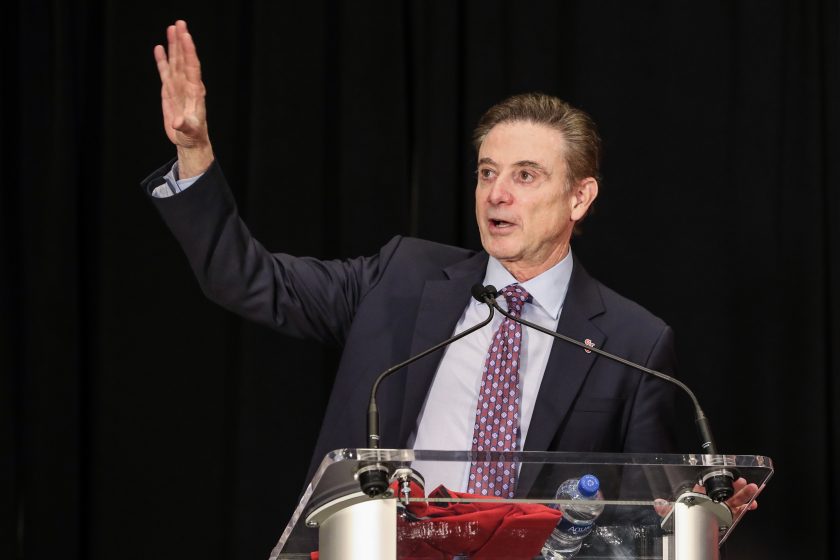College sports’ NIL era is working exactly how powerful want. Miami’s Isaiah Wong is proof
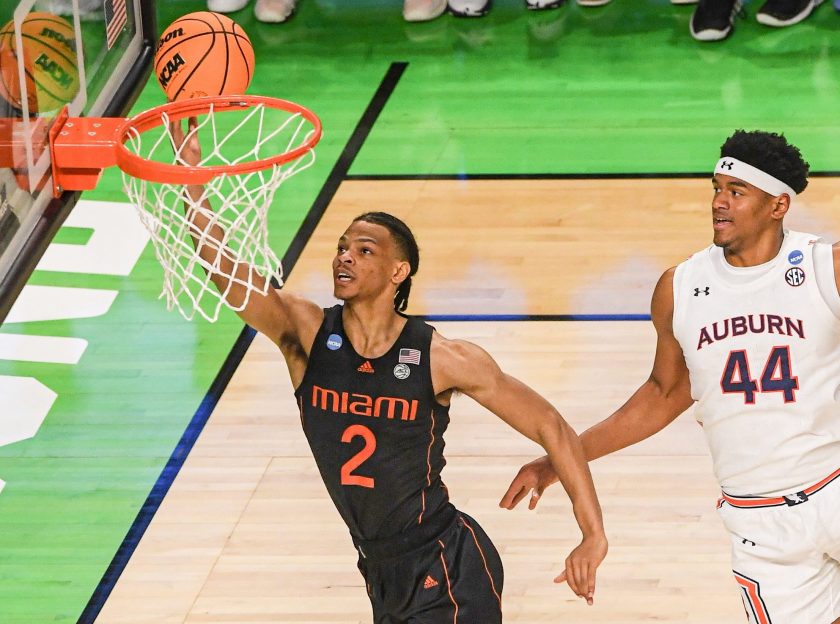
We have reached the inevitable point of the name, image and likeness era where all the quiet parts have been said — no, screamed — out loud in the form of some no-holds-barred, free-market hardball.
Isaiah Wong was the second-leading scorer on Miami’s Elite Eight team this past season. He has a deal with mega-booster John Ruiz and his health technology company LifeWallet. But it’s not as big as the deal Kansas State transfer Nijel Pack recently got from Ruiz. So Wong and his agent (who also represents Pack) ran to every microphone they could find Thursday night with a simple message: Give Wong more money by Friday, or he’s going into the transfer portal.
Ruiz is holding firm (for now). The rest of the world is hyperventilating about pay-for-play and the death of college sports as we know it, demanding the NCAA stop praying Congress will rein in the free-for-all with legislation and actually do something itself. Which is perfectly understandable. But remember: The NCAA is the schools, and outgoing president Mark Emmert is just their highly-paid lightning rod.
If the members wanted to fix NIL, they would. Don’t be fooled by the calls for Congressional intervention. It’s all cheap and empty talk. Yes, it has been messy and often defies common sense and decency. But NIL is working out just fine for the institutions that have, and it’s not like those schools are suddenly going to start caring about the have-nots now.
Let’s bring it back to the news of the day: If Miami and its surrogates cannot or will not scrape together the cash to keep Wong a happy Hurricane, someone else will. There will be no lack of suitors for an All-ACC point guard with significant March Madness experience. There are boosters all over the country who will gladly write six-figure checks in the name of having a better chance to cut down the nets next spring. Because that is how free agency works. And yes, let’s stop pretending this is anything but.
NIL was intended to allow college athletes to sell t-shirts, do social media posts for local eateries and run youth camps in the summer. The point was for everyone to get paid a few bucks for what they are good at like any other student on the campus, with a select few being able to rack in significant paydays. And 97% of the time, that is what is happening.
But there was always going to be a select group that enjoyed a windfall thanks to the loopholes that were purposely constructed for the purpose of bring the bag men out of the shadows and making legal what was long done illicitly. It’s the new front in the arms war, and one where the combatants have no desire for preconditions or restrictions.
If you have the money to attract recruits and transfers and retain your current players, good for you. And if you don’t, that’s unfortunate — but don’t expect the programs that do to stop spending theirs. It’s no different than hiring a big-name coach or building a sparkling new facility. And there is no shame in approaching it as so.
Alabama football coach Nick Saban made headlines a few weeks ago when he told The Associated Press he felt the current model was unsustainable. “That creates a situation where you can basically buy players,” he said. “You can do it in recruiting. I mean, if that’s what we want college football to be, I don’t know.”
Many read that as a legend lamenting the current reality. No, that was an acknowledgment and a threat. The current NIL landscape may not be sustainable. But having the same four teams in the College Football Playoff every year really isn’t either, and we keep doing that.
If this is how everyone wants to play, Saban and Alabama are going to play — and win. The sentiment is shared by every other top college program with championship aspirations and the willingness to go all out in that pursuit. That is the business now and into the foreseeable future. Money talks. If you have the means, you get to compete. If you don’t, oh well. This is working out exactly how it is supposed to. Wong realizes it, and perhaps everyone else now will too.
James Kratch is the managing editor of ESNY. He previously worked as a Rutgers and Giants (and Mike Francesa) beat reporter for NJ Advance Media.

